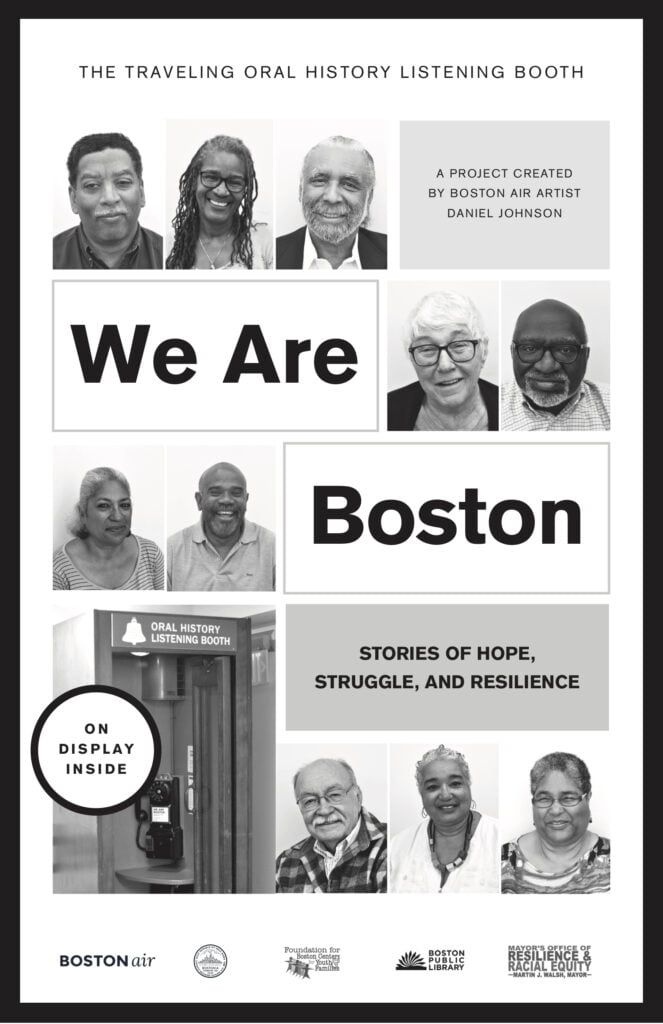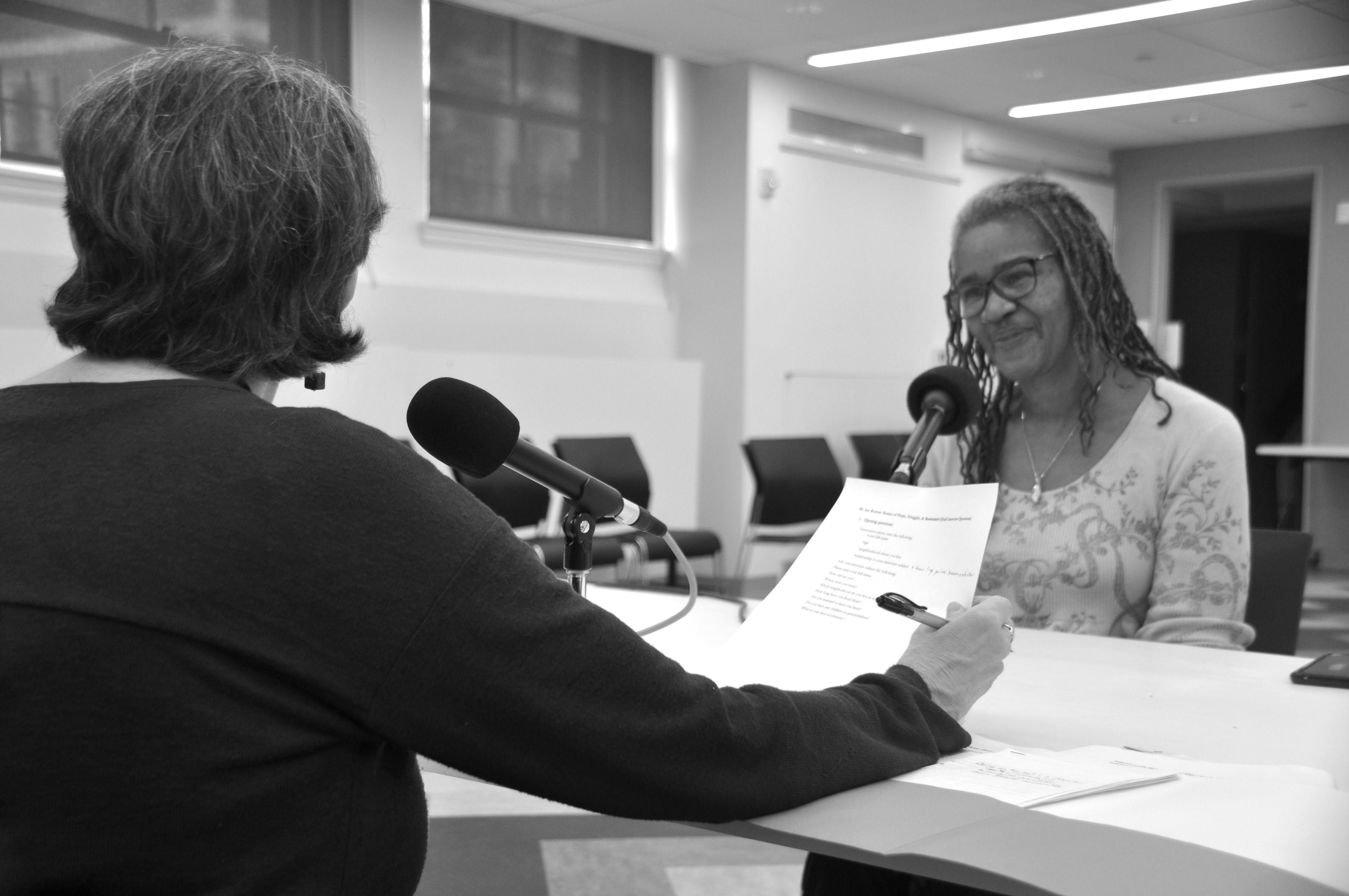
Patrons of the Boston Public Library from Jamaica Plain to Dorchester and Mattapan are soon to stumble across a curious sight in their neighborhood branch, if they haven’t already–a 1930’s-era wooden phone booth sporting a sign that reads “Oral History Listening Booth.” When they step inside, shut the accordion door, and rotate the phone’s dial, they will be transported to another time and place.
Johnson’s oral history project finds inspiration in the Depression-era Federal Writers Project, the journalism of Studs Terkel, and StoryCorps, all of which have emphasized the importance of preserving the stories of everyday citizens. For the first few months of his residency, Johnson led oral history workshops at sites across Boston including Curtis Hall Community Center in Jamaica Plain, where he has been in residence, the East Boston Senior Center, Harbor Health in Mattapan, and the Charlestown Golden Age Center. A number of these workshops occurred in conjunction with the Elderly Commission and their ongoing Memory Cafés–events for Bostonians suffering from memory loss–held at senior centers across the city. Participants came forward at these workshops offering to be interviewed or to interview a friend or relative. Through this process, seniors like Marta Gredler, age 68, of Jamaica Plain came to serve as ambassadors for one another’s stories, drumming up questions, preparing for interviews, and shepherding their subjects through an hour-long recording session. “I feel fortunate myself to have interviewed so many Bostonians who richly described their paths, poignant memories, and cherished friendships,” shared Marta.
We Are Boston currently features nearly three dozen stories told by 13 different Bostonians ranging in age from 58 to 85. At a time when Boston has become a majority minority city, Johnson also views his oral history project as a corrective, given that city archives, like Boston’s, often fail to reflect the incredible diversity of the people who inhabit them. According to research in the field, city archives regularly lag behind changing demographics and reflect the narrative of those who have historically held power or been elected to office. We Are Boston, however, foregrounds the voices of everyday Boston residents whose stories would not be recorded and preserved otherwise: seniors, people living with disabilities, people of color, and residents of marginalized communities. As Boston and its city government look to bolster race equity and resiliency, We Are Boston presents an inclusive, diverse portrait of society while fostering cross-cultural understanding and communication.


About Boston AIR
The Mayor’s Office of Arts and Culture created Boston AIR as collaboration with Boston Center for Youth & Families. “The Boston AIR program brings bold and creative thinking into areas of municipal government,” said Mayor Walsh. “I’ve been very impressed with past Boston AIR projects, and I can’t wait to see what this next group of artists accomplishes.” In the third year of the program, artists are collaborating with community members and City of Boston employees through projects that explore key policy areas, including racial and social equity. The selected artists are expected to explore how socially engaged art processes can be used to bolster City initiatives such as climate change, immigration, and income inequality. Additional artists selected by the City of Boston to serve in 2018 include visual artist Steve Locke; dancer Marsha Parrilla; writer Nakia Hill; taiko drummer Karen Young; performer D. Farai Williams; and graffiti artist Sneha Shrestha.
Partners & Collaborators
Thank you to the following collaborators for making this project possible:
- Katie Burke, Archiving Coordinator
- Jon Demiglio, Video Production
- David Goodman, Lead Audio Engineer
- Marta Gredler, Field Project Coordinator
- Ethan Koss, Website Design
- Erica Lee, Graphic Design
- David Levin, Sound Installation Design
- Alison Sikowitz, Archiving Coordinator
You can find these recordings along with the transcripts at the Boston Archives. Read about the project at Boston.gov